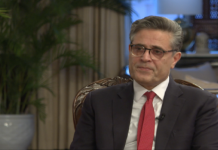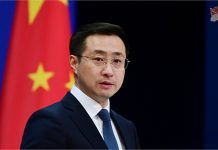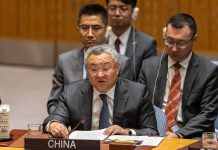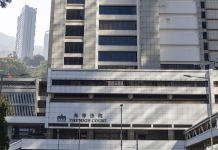By Ajmal
Khan Yousafzai
ISLAMABAD: China-Pakistan friendship is changing the fate and the face of an area that straddles one of the most fascinating parts of Central Asia. In fact, China-Pakistan Economic Corridor (CPEC) is a first in history, and a unique set of development projects, which is paving the way for a new type of international and regional cooperation.
Under CPEC, there is one project named Rashakai Special Economic Zone (RSEZ), which is poised to uplift Pakistan’s northwestern Khyber Pakhtunkhwa (KP) province by attracting local and foreign investors, creating thousands of jobs, increasing the female work force and integrating tribal youth into business activities. Jobless local youth will themselves better their lives via skilled and semi-skilled jobs in a budding industrial sector. They will not be compelled to being hard physical labour inside their country or outside as their only option to feed their families.
RSEZ will generate development, provide employment, and bring in economic and social services, which the native residents of this area could only dream about for decades. These dreams and hopes are on their way to becoming reality!
The government of KP and its Khyber Pakhtunkhwa Economic Zones and Development and Management Company (KPEZDMC) and the China Road and Bridge Corporation (CRBC) plan to develop RSEZ with an investment of $ 128 million, spreadingover an area of approximately 1,000 acres of land.
The inauguration ceremony of RSEZ was scheduled for November 21. However, due to the recent increase in Covid-19 cases, it has been postponed.
“We are all ready for the inauguration.As the current wave of coronavirus subsides, Prime Minister Imran Khan will inaugurate the zone,” Abdul Karim Tordher, said Special Assistant to Chief Minister KP on Industries. He said the internal development work would begin after the inauguration. However, external developments such as road construction, laying of electricity and gas pipelines and other services are proceeding with full swing.
According to Abdul Karim Tordher, the objectives of the zone are to develop, market, operate a successful, sustainable SEZ as a feasible business proposition for economic growth and employment generation.
The total project investment is $ 128 million, out of which project development would cost $ 94 million while $34 would go to financial, marketing and operating expenses.
Talking about the expected economic impact of RSEZ, Abdul Karim Tordher said the zone would generate more than 200,000 jobs (50,000 direct and 150,000 indirect).






